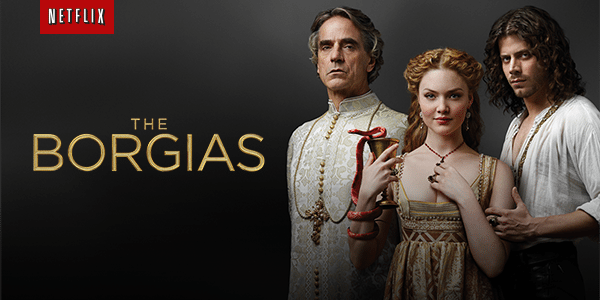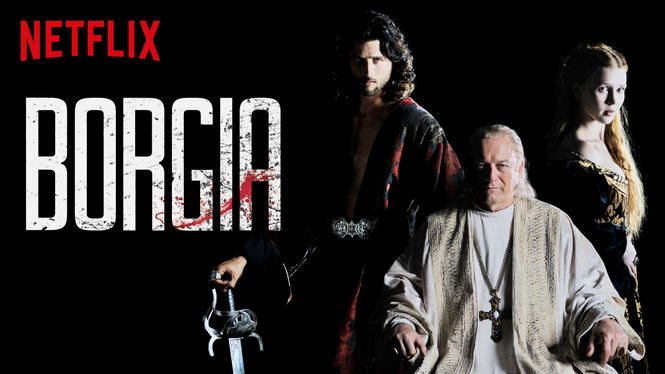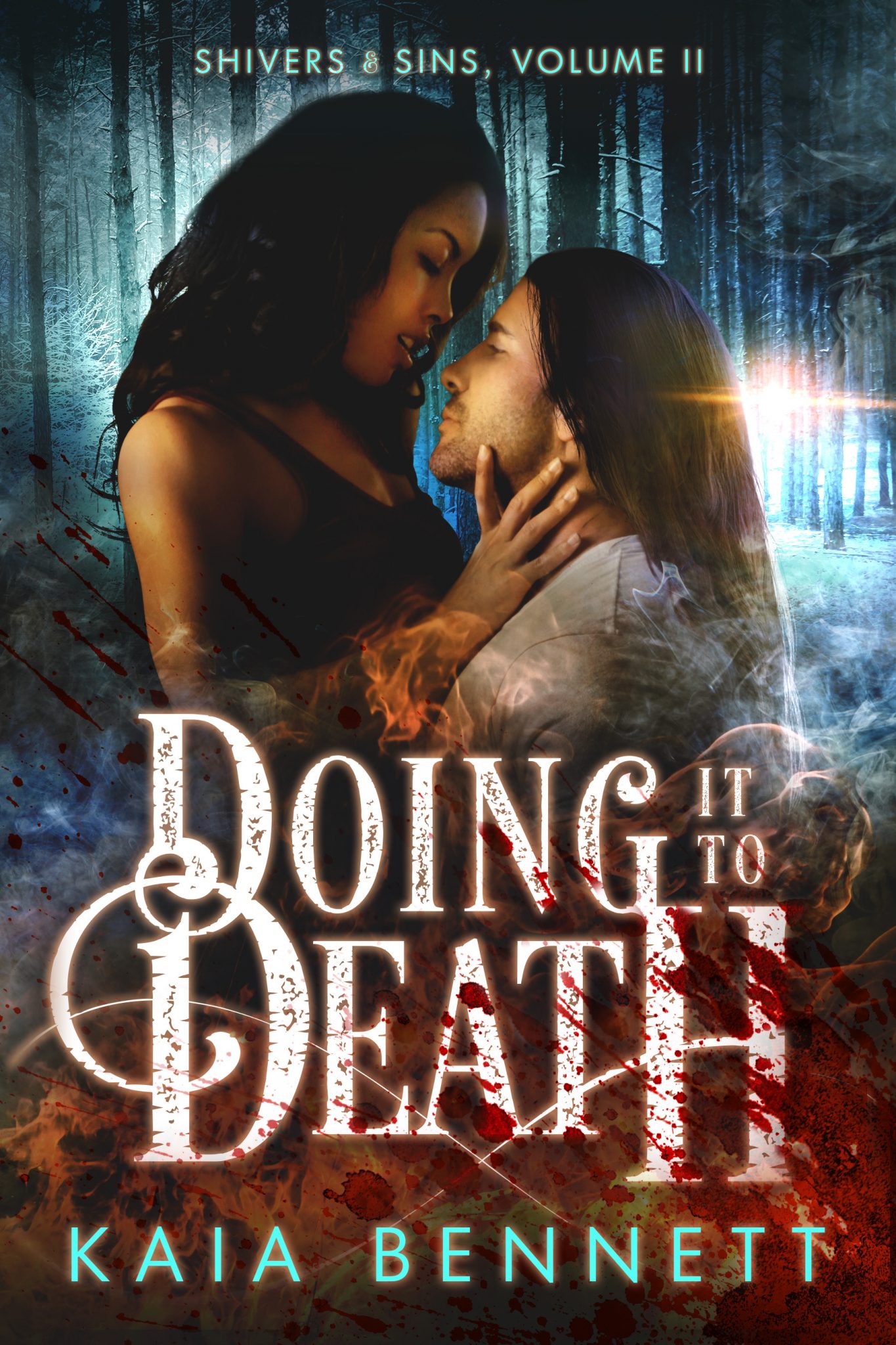Totally gonna geek out here, but this is the kind of stuff that inspires me. If you don’t give a shit about my winding mental processes or shows like The Borgias and Borgia, then I’m sorry. Feel free to skip to the end for my summation/epiphany, lol:
I just finished The Borgias (Showtime version) about a week ago and I liked it, but it ended in a way that made me interested to learn more.

So then I noticed Borgia (European series) on Netflix. I started it and at first I was like, “No.” Purely for aesthetic reasons mind, because I was looking for a similar feel to The Borgias. I got caught up in seeing those characters a certain way for three seasons and Borgia is another animal for several reasons.

It has a smaller budget (actually because the Showtime version screwed them over, but I digress) and various accents due to its international cast. Its gotten some shit for having an American Pope Alexander, even though he’s more suited to the role than Jeremy Irons. It’s not as visually sleek. BUT, something told me not to write it off. Maybe it’s the theatre geek in me, the person who revels in interpretation, who knows that a character played by different actors can be an inspiring thing to see in large part because of the differences.
I did my research and found out that what I suspected was true. The Borgias on Showtime was a glossy version that was missing a sense of historicity. It is thoroughly Americanized (not an insult mind, just true), with an emphasis on rooting for a particular side and romance. Which means much of what made the Borgia family interesting enough for modern audiences is lost for the sake of plot.
Borgia on the other hand, makes you feel like you’re IN Renaissance Italy. Some of it is sexy, some of it is downright disgusting. The sensibilities are different, the characters are neither evil or good. There is romance, but it’s not central to the plot. It’s just a motivating factor like the desire for power, anger, lust, fear. And here’s the kicker: that to me makes it better, and I’m not even finished yet.
All this to say that, had I taken the second series at face value, I would have missed out on a helluva experience. I’m almost done with season two and all I can think is, it taught me a valuable lesson about the experience of creating and ingesting art. It’s subjective. It’s all relevant. Someone can literally use all the same ingredients and make two different cakes that are delicious for different reasons.
Maybe it would be nice if the series I prefer had gotten the acclaim and budget of the one I saw first. But at the end of the day, as long as you make something you love, someone out there will see it. They might even PREFER your interpretation. And that’s a beautiful thing.


I’m almost finished with the Netflix series, after having watched the Showtime version earlier in the year. Initially I wasn’t at all impressed with the Netflix series, but after three episodes I started really getting into it. It gives a pretty gritty view of life in Italy during the Renaissance, and it also paints a different picture of practically all of the characters.
I did not like John Doman as the Pope—at all. Maybe it was because, as many others have pointed out, of his very out-of-place accent. Maybe I find that he’s just not a good actor. Or maybe I was comparing him to Jeremy Irons. The Netflix series has us believe that the Pope had epilepsy and was in love/lust with his daughter Lucrecia. I’m not sure what the truth is. I thought both just got in the way of everything else.
Both series are primarily about Cesare, which is fine with me because he, in my opinion, is the most interesting character. Both actors are really good and really good looking, although Francois Arnaud is more likeable. If what I’ve read is correct, however, the Netflix portrayal was more accurate.
I liked the Netflix Lucretia better—especially as the series went on I found Showtime’s Lucretia annoyingly self-centered and immature. But I guess she was only fourteen years old.
A couple of things I really liked about the Netflix show. First Alessandro Farnese. He had a tiny part on Showtime. On Netflix he was one of the main characters, and deservedly so since he went on to be a Pope himself. I loved the inclusion of Leonardo da Vinci and Michelangelo, although Netflix was very inconsistent with them. Da Vinci was apparently an important part of Cesare’s army but he disappeared from most of the battle episodes. Netflix also had more skin and sex scenes. It had more gore, too, but I don’t necessarily enjoy that.
And a couple of things Showtime did better. It was grander and obviously more expensive to produce. It was thoroughly entertaining. They kept the of facts to a manageable number—which is I guess why most Europeans accuse them of “dumbing it down” for the Americans. I just wonder how many facts one can absorb in an hour. I liked Savonarola, Machiavelli, and Caterina Sforza better in Showtime. And Julia Farnese was more like what I envisioned her to be, certainly far more “bella” than the Netflix Julia.
I’m not sure who had which facts correct, but that’s what I’m researching now. I’m really glad I watched both series. For entertainment value, Showtime wins. For a more “documentary” approach, Netflix gets the edge. Watch them both and you get the best of everything.
Hey Rob! I agree with most of what you said here, especially first impressions of each series and how watching both feeds a hunger for knowledge and spectacle. I almost didn’t watch the Netflix version, and so I’m glad I watched Showtime first and felt like I needed more. I’m also glad I really paid attention to the reviews of Netflix and pressed on after 2 eps because MAN does the Netflix series go out with a bang (I loved the ending in large part because it has one! lol). Honestly that may be the blessing in disguise behind Showtime’s cancellation of their version, because Netflix to me is the superior show with a couple of flaws (I wasn’t a huge fan of the vitriola subplot but even that was handled with good research just like the mercury baths for STDs).
I think you’re right about it having more of a documentary feel, but what I liked was that whereever Netflix took liberties you could usually find historical context for them. They toyed with real theories much more than their competition. Showtime is almost a fan fiction version of the Borgia family and it’s gorgeous, well-acted fan fiction at that. But I think it suffered for the very singular vision of the showrunner, who eventually just lost steam and didn’t complete the series when he had an opportunity to (he tried to get a movie made instead of a final season but Showtime said it wasn’t cost effective. There was plenty of material left I think he just was tired of the show).
I like Jeremy Irons as an actor and I think he brings gravitas when he’s not playing spiritually frail, but ultimately he was miscast. Doman wasn’t as strong in some of the emotional scenes, and his accent is distracting at first, but he fits better as the Pope based on research and the truth of the time period. He’s an imposing and gluttonous figure, a foreigner no matter how long he’s in Italy, and very human, which I think makes for a richer representation. You expect people to challenge Jeremy Irons’ Pope because he appears weak and distracted by sins of the flesh, whereas you have to up the stakes quite a bit with Doman’s Pope. He’s less likeable in several instances, but seems strong, imposing, and not so easily distracted by his personal sins. Considering the church was rife with corruption, greed, and sex at that time, but also ardent faith, you feel like you’re dropped into another world. Showtime makes it seem shocking to have a mistress when Netflix makes it clear you’d have an easier time finding a Cardinal who wasn’t having an affair (considering how many popes had illegitimate children before and after Pope Alexander, they kind of have a point).
I also found that Netflix’s Julia grew on me. I was in your camp at first, as I felt lulled into the myth of Showtime’s Julia, her soothing tones and graceful mannerisms. But Netflix gave Julia spunk and humor and also stayed true to her age. She’s earthy and sensual, more commanding, and yet still a very young woman, and that falls in line with the real Julia. Showtime gave the character ethereal grace to go with Irons’ somewhat flighty Pope, but ultimately sidelined an historically formidable woman in favor of making her a living portrait of “bella”. It’s a testament to both actresses that I like them both even though they’re night and day in terms of characterization. And to this day the conversation between Lucrezia and Julia during their first meeting stands out more in the Showtime version.
Same for Lucrezia. I think both actresses are lovely. Grainger is stunning and plays up young manipulative girl quite well, but ultimately her character devolves into the more salacious rumors and becomes a kind of alternate Julia, where her ethereal beauty is used for nefarious deeds. The real Lucrezia by many accounts was her father’s daughter, a true contradiction. She was beautiful and full of lust and ambition, but also became a respected woman and a formidable figure like Julia. Netflix makes it clear that formidable women weren’t just beautiful, they also held respected positions in the community and had the ear of powerful men as knowledgeable counselors. They also had quite a lot to lose and so it ups the stakes in a way I didn’t feel with the Showtime version’s women.
I thought Netflix had the stronger Juan, but it’s hard for me to choose a Cesare, and perhaps that’s a testament to the real Cesare being such a compelling character. Both are handsome (Netflix’s Cesare really steps up his game S2 in the hotness department), but I think they made Showtime’s Cesare more soulful and, dare I say, sweet? There’s almost an innocence to him especially concerning his love for Lucrezia, who he had amazing chemistry with. The Netflix version had more fun with his hubris and his true accomplishments off and on the battlefield. You truly get the sense that this man shaped the world around him. When you finish you’ll see what I mean. The question “what if” pops up a lot of with that character. He gives a whole new meaning to the word “driven” and you get why Machiavelli called him The Prince.
Showtime knew what they had with Caterina. Honestly that woman could and should have her own show. And they also struck gold with the actor they cast as Micheletto, and they had more fun with their villains (less gray areas despite this being a show about a notorious crime family). But I never mustered up the same amount of emotion for most of the secondary characters in Showtime as I did in the Netflix version (Alessandro Farnese is great like you said, and Vanozza and della Rovere in particular evoked strong responses).
Finally, budgeting and costuming is clearly on the side of Showtime, but the unfortunate truth is that it almost wasn’t so. During the pre-production phase the two teams, realizing they both wanted to tackle the same story at the same time, met up and shared their visions for a unified Borgia project. Unfortunately, Showtime had a very different agenda than Netflix, so all of the splendor and commercial gravitas went to the historically weaker show. Netflix as a joint European/American production picked actors who fit the characters best and plopped us into Renaissance Italy straight with no chaser. Hence the sex, gore, and peak into the juxtaposition of faith and sin, bursting creativity and strict social structure. But, for lack of a better word, the costumes in Netflix are more real. When I think on the Netflix series now, a few costumes stand out, but mostly it’s the about the characters. The world they’re in feels lived in and full of real life smells, real sweat, you can almost taste the food and the grittiness of life. When I think of Showtime I recall individual costumes, sumptuous settings, like my mind has lit on a moving painting. It’s utterly memorable and that fits with our idealized concepts of Renaissance Italy. But if someone told me tomorrow I needed to prepare myself to go back in time and I could choose one show for research? I’d choose Netflix lol.
I loved reading your take on both shows! Ultimately that’s why I wrote this post. I’m glad I live in a world where both can exist side by side and I’m glad you shared your thoughts! Let me know what you think of the ending 🙂
To Rob D and Kaia I have to say that I enjoyed reading your takes on both of these shows. I have not watched Showtime’s The Borgias, so my opinion is small at best, but after watching Borgia I cannot bring myself to watch the former version (I tried).
The accent (John Doman) did not bother me one bit, well maybe a little, but as an ESL person I was more worried about it being a period piece more so than a piece of showmanship (hence Showtime being behind it).
I could go on and on about Cesare in Netflix, but I do not want this comment to become a Fifty Shades of Grey analogy.
Again, thank you for your well versed comparison of the shows, it makes me feel glad that I watched the one I watched.
The Borgias featuring Jeremy Iron was so painful to watch. Its got the gloss but it ends there. The story line, acting, dialogue was so simplified (think reading DC comics in the 1950s vs reading Marvel comics in the 1980’s). The better less glossy but better acting, dialogues, flow and story line belongs to the French/German version known as Borgia with an international cast was more Game of Thrones-esque (I got into GoT late in the game because there was so much more fun watching excellent historical based series like Rome, Spartacus, The Tudors).
For those who can’t get over an American accent in an actor playing Italian/Latin role it is something to get over quickly. My brother in-law couldn’t and it kind of ruined it for him.
Executive Summary: Borgia – Excellent. The Borgias – bleh!
I agree. I found some merit in the Showtime version, mostly because of the younger cast and gloss, but I hands down prefer the European version. Was never a big fan of The Tudors, but I loved Rome and Spartacus.
John Doman was awful. But it was worth watching for Isolda Dychauk.
I hear ya. John Doman definitely had limited range, and I know at first his American dialect was off putting. But I think we’re just programmed to hear less sophistication in it compared to European dialects… even though English accents used to sound more like what we associate with American. I do think seeing him broach the character revealed just how ill suited Jeremy Irons was to the role, though. Irons is a talented actor, but Doman fit the role better in terms of physical presence and historicity. On paper it sounds nuts, but if I had to choose between the two, I’d choose Doman. I never bought Irons and the world created around him was sumptuous but ultimately hollow.
And as someone who loved Holliday Grainger, I have to agree that Isolda really made the role her own. I still prefer Borgia to The Borgias to this day because of performances like hers, and if I ever get the chance to tackle historical stories, that’s the feel I’d want from them.
I actually liked all of the actors better in the showtime series.
I did really like most of the actors in this version, no lie. I just think Jeremy Irons was the wrong choice, and the writing didn’t do him any favors. These are all seasoned actors that could have made the phone book sound like Shakespeare, so I tend to think the writing and the showrunner’s vision was the real culprit behind why I preferred the other version as a whole.
Borgia brilliant! But then I love my history. The Borgias, no! Jeremy Irons was totally miscast. I agree that the mix of accents in Borgia is offputging at first but if you think that Rome was a pretty cosmopolitan city and there would have been a mix of accents then maybe it’s not quite as annoying.
I thought John Doman was well cast, in fact I thought the entire Netflix production was well cast. Sad that it’s been removed as I had just got my husband to watch season one and it was taken off. Trying to find it on dvd.